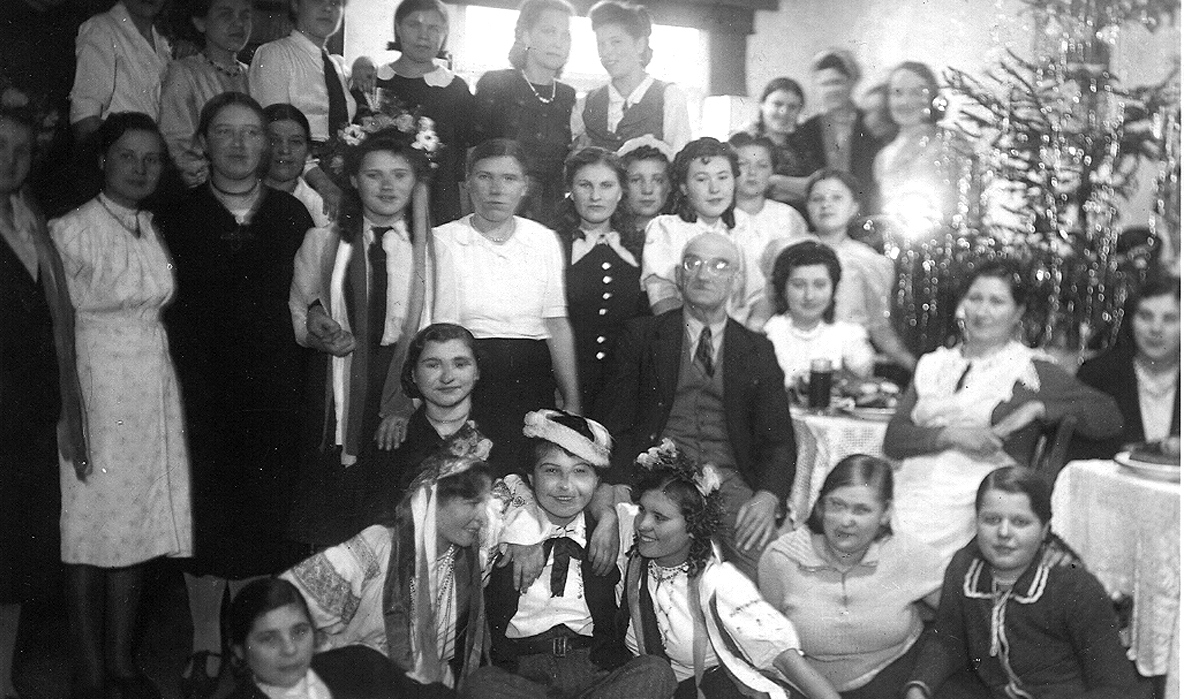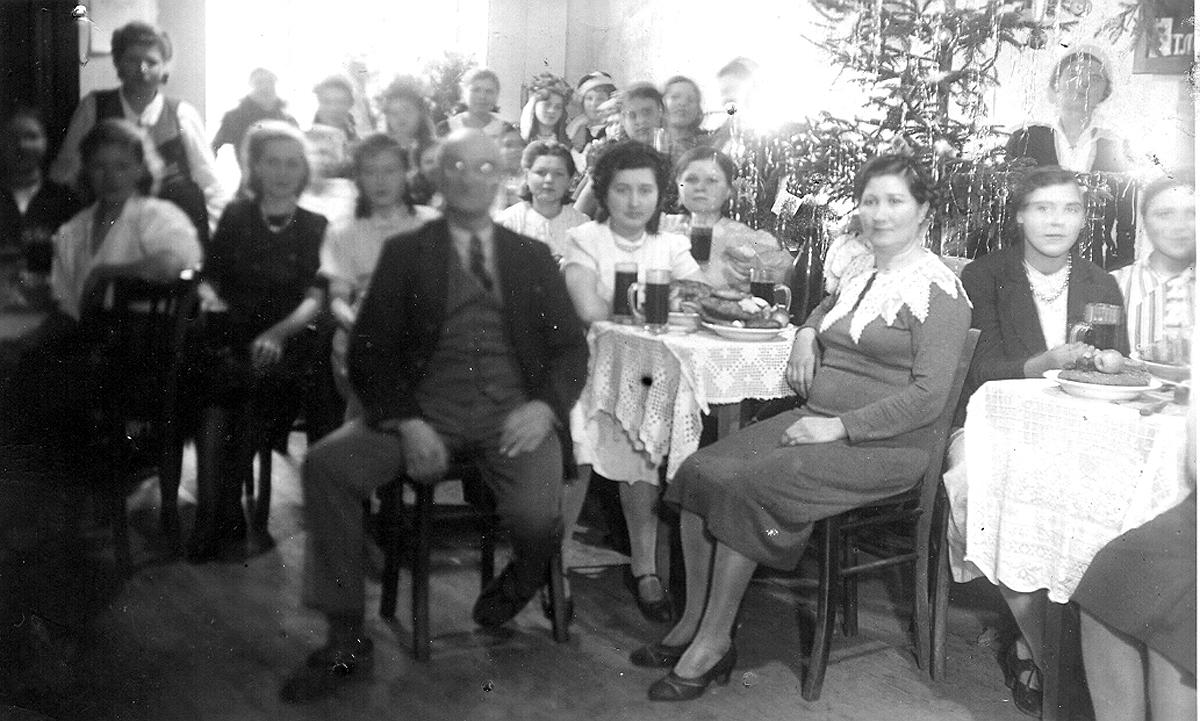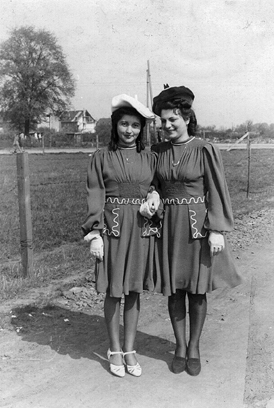Brauweiler, #3200, #43/200; N. Rhine-Westphalia (British) outside Koln; Poles, Balts, Yugoslavs, Belarusians
Dear Olga,I just finished looking through your web site on DP camps. What a wonderful site! I was born in Brauweiler DP camp in 1946 and in 1950 came to Canada along with my adopted parents. I am trying desperately to find some information on my birth mother. I have her name and date of birth, no more. I have tried through the Red Cross and have gotten nowhere. I am hoping that maybe you could give me some ideas on what agency I might contact to get some information on displaced persons in a specific camp i.e. country of birth, who was repatriated and who emigrated and where they went. There must be some lists somewhere. Thanks for taking the time to read this. Teresa Bagyan
Teresa: please e-mail to Tess below (Terese Umbras Fehlberg) as soon as you can.
Dear Olga,
I have stumbled on your website as I was looking up info on Brauweiler. I
am now wondering if there is another web where I can make inquiries about that former DP camp? I spent a few very difficult months there end of 1948/early 1949; part of the camp was a 15th century ex-monastery, the other part was a former jail building. With few exceptions (about 30
Hungarians, like me, a few Yugoslavs and Balts) the camp was predominantly
Polish.
I have just finished writing my recollections about those post-war years in Europe and would very much like to make contact with anyone who was at Brauweiler about that time and could refresh my memory on a few details? I have been living in Sydney since December 1949, I am a fulltime professional journalist and writer, still very active (at 76). Kindest regards, you're doing a fantastic job! Andrew Dettre, Brauweiler: memoirs of Andrew Dettre [email protected]
Dear Olga,
Your dpcamps page was interesting. Thank you. I know I was born in Brauweiler camp outside Koln but I do not know where my parents were first held. Mum came from the Ukraine (1941) as forced labour and Dad came from Belorus (early in the war) and was a military POW. As neither Polish, Belorus/Russian or Lithuanian armies can tell me of him, I should like to find his record of capture in Germany to establish whom he served and when and where he
was captured. Yours truly Terese Umbras Fehlberg / Australia
Dear Olga,
Thank you. I believe these photos are taken in the Brauweiller
camp or in Dusseldorf (around Christmas time, because of the tree) which I can only assume is 1945 (due to another picture of my mother in the same dress which she used as a postcard and dated 1945 on the back) and the other of two women most likely 1948.

My mother Irena Leokadia (Lydia) **Krasowska (actually Dudnik) and my grandmother Maria Krasowska (actually Dudnik nee Rindzina)are sitting at the table with the gentleman with glasses. They were 19 and and 38 years old respectively. **Krasowska was the name of my babushka's second husband, Florian.
The costumes in the forefront are Ukrainian. I looked up the Belorus costume site www.kresy.co.uk/belo_costume.html which shows historic regional dress but they do not really bear a close resemblance to the simple everyday pieces that the girls in the photo are wearing. Mum and Gran were Ostarbeiter (east workers) but according to my notes they were taken late in 1941 whereas history seems to say that the first train out of Kiev of "volunteers" went on 29 Jan 1942. They were from the Voroshilograd (Lugansk) and Yenekieve region but had resettled around Kiev in the 1930s. To appear "Polish" they claimed to be from Rohatyn. Many Ukes spoke Polish as well and sometimes exclusively, even if they were ethnically Ukrainian, simply as a matter of assimilation it seems. My Mum and Gran managed because Mum could think on her feet, already spoke schoolbook German, a little English, and learnt simple Polish from her contact with Poles and Polish-speaking Ukes. Gran kept her mouth shut.
They would only ever give me snippets of stories..... But I know that Mum and Gran in a group of 20 Ostarbeiter travelled many kilometers on foot when the factory/camp (Dusseldorf I guess) they worked in was bombed by the Allies, and travelled south towards Koln, dodging Allied fire from aircraft and often laying in ditches and haystacks overnight. Mum travelled forward to the mayor of a town while the others lay waiting, to get clearance so they did not get arrested, but were eventually herded up and finally ended up in Brauweiler. Cheers, Tess

Close up photo shows my mother and babushka.

This is my mother and a friend whom might be Julia Kolodziejska, which would have been around Brauweiller/Köln area. My mother married Bronislaw Umbras.

This photo is taken in the same hall. This Christmas celebration was no doubt sponsored by the UNNRA. The tree was probably cut from a nearby forest outside the camp.
12/30/05
Thank you so much for this site! My Polish grandmother was in Brauweiler from 1945 - 1951. She said she used to work in the "English Casino" which she translates into a "cafe" in the kitchen. She's told us many stories of her time in the camp, and your site has really put it more to life!
My mom was born there as well as 2 other uncles. I am wondering if anyone has any more pictures of the camp or may have any similar experiences. The Godmother on my mother's baptismal certificate is Josefa Augustynowa and Godfather Antoni Lucjanek.
We know nothing about them but would love if anyone has more information on them or the camp, to please email me at [email protected]
Thank you! John/Lori Collins
Brauweiler 1945-1955 in Archives
Conference on concentration camps mentions Brauweiler concentration camp, in German. Addresses are on this page.
Forced labor in Köln, in German. Use Babel fish computer translation to help you read it.